In the given figure, PQRSis a parallelogram and U is the mid point of QR. If PQ=4cm, then what is the value of PT (in cm.)?
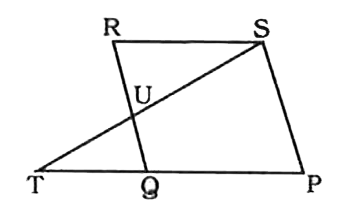
6
6.5
7.5
8
The correct Answer is:D
Step by step video, text & image solution for In the given figure, PQRS is a parallelogram and U is the mid point of QR. If PQ = 4 cm, then what is the value of PT (in cm.)? by Maths experts to help you in doubts & scoring excellent marks in Class 14 exams.
Updated on:21/07/2023Similar Questions
In the given figure, PQRS is a square and T and U are respectively, the mid-points of PS and QR. Then what is the area of ∆OTS if PQ = 8 cm?

View SolutionIn the given figure, triangle PQR is a right angled triangle at Q. If PQ = 35 cm and QS = 28 cm, then what is the value (in cm) of SR?
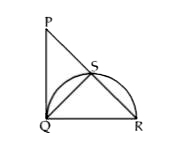
View Solution
Knowledge Check
In the given figure, PQRSis a parallelogram and U is the mid point of QR. If PQ=4cm, then what is the value of PT (in cm.)?
 A6B6.5C7.5D8
A6B6.5C7.5D8In the given figure, triangle PQR is a right angled triangle at Q. If PQ = 35 cm and QS = 28 cm, then what is the value (in cm) of SR?
 A35.33B41.33C37.33D43.33
A35.33B41.33C37.33D43.33In the given figure. QRTS is a cyclic quadrilateral. If PT = 5 cm, SQ = 4cm, PS = 6 cm and ∠PQR=63∘, then what is the value (In cm) of TR?
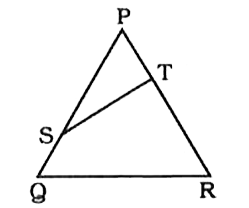 A3B7C9D15
A3B7C9D15
In the adjoining figure, PQRS is a parallelogram. A and B are the mid-points of PQ of SR respectively. If PS= BR, then prove that quadrilateral ADBC is a reactangle.
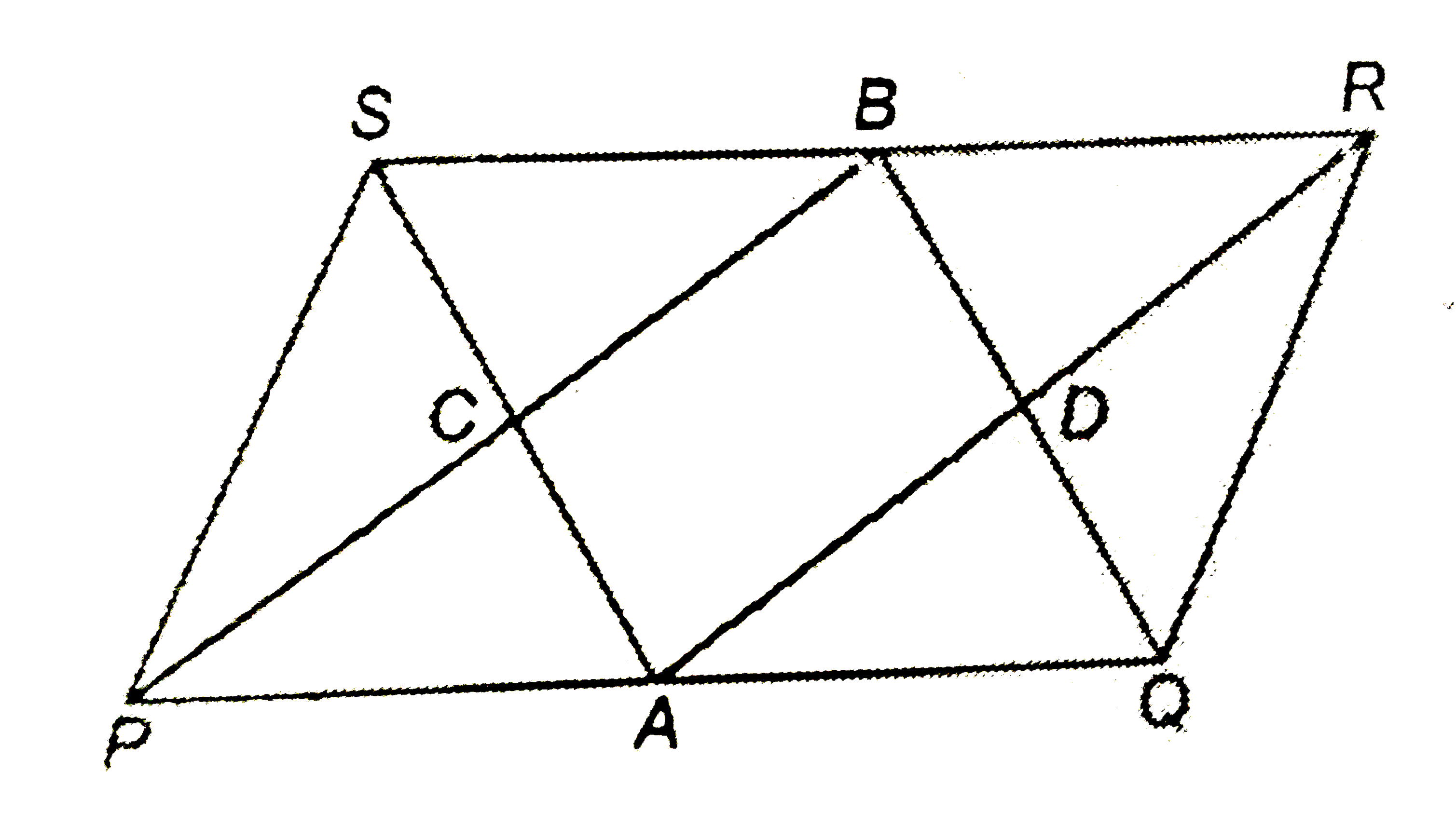
View SolutionIn the given figure, PQRS is a quadrilateral. If QR = 18 cm and PS = 9 cm, then what is the area (in cm2) of quadrilateral PQRS?
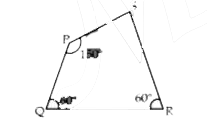
View SolutionIn the given figure, if QRXY=149 and PY = 18 cm, then what is the value (in cm) of PQ?
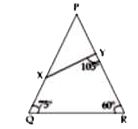
View SolutionIn a given figure PQ = 24 cm. and M, N is mid point of QR and ST, MN ⊥ PR, QS = 7 cm. and TR = 21 cm. then find value of MN?

View SolutionIn the given figure , PQRS is a parallelogram with PQ = 16 cm and QR = 10 cm . L is a point on PR such that RL:LP=2:3QL is produced to meet RS at M and PS produced at N . Find the length of PN and RM (in cm ) respectively .
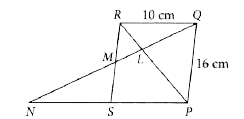
View Solution
